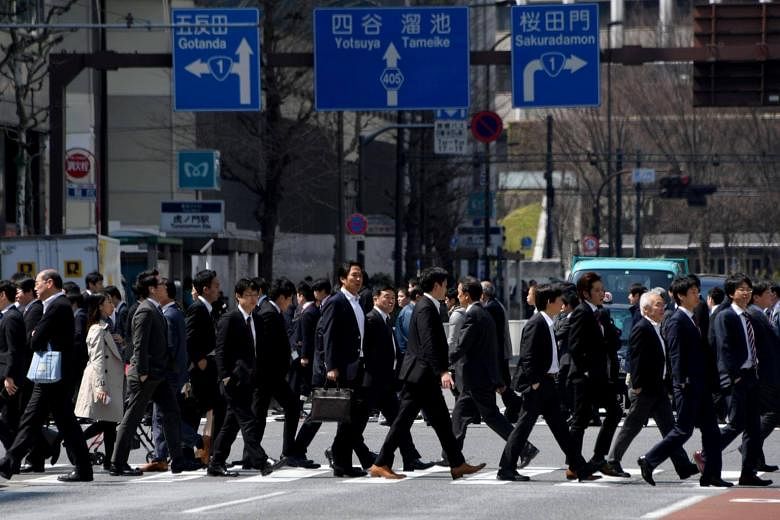In its editorial on May 31, the paper advoccates greater use of technology, as well as further deregulation to spur growth in the Japanese economy.
TOKYO (THE YOMIURI SHIMBUN/ASIA NEWS NETWORK) -Simply offering a new lineup of policies will not contribute to building up the underlying strength of the Japanese economy.
It is crucial to steadily implement policies.
The government has drafted its fifth strategy to push ahead with the Abenomics economic policy package, titled "Future Investment Strategy 2017."
The pillar of the newly drafted strategy is a realisation of the fourth industrial revolution centered on enhancing productivity. The draft plan calls for intensively injecting policy resources into five strategic sectors, including a "revolution in transport", "health", and "financing."
In concrete terms, the draft calls for bringing about truck platooning, or convoys of unmanned vehicles led by a driver-driven truck, on highways by 2020. The draft also aims at realising unmanned delivery of goods by drones in urban areas in the 2020s.
Enhanced efficiency in distribution will likely resolve the serious shortage of manpower in the trucking industry.
As for the health sector, the draft incorporates a policy of spreading telemedicine, which is the use of telecommunications to remotely diagnose patients through the use of artificial intelligence (AI).
Enriching medical services is expected to extend healthy life expectancy and increase the workforce. The policy course of creating new types of business by utilising robotics and AI is appropriate.
What is worrying is the fact that the past four growth strategies failed to bring about tangible results.
Efforts to improve productivity using AI have been made by large businesses. However, these endeavours have not yet reached a stage transcending boundaries between industries. The productivity of Japan's nonmanufacturing industries, such as retail, is especially low by international standards.
The government needs to comprehensively sort out the problematic elements of past policies before modifying and improving growth strategies.
Deregulation measures hold the key in this regard. Implementation of a system where wages are based off productivity rather than hours clocked, has been delayed. Participation of joint-stock corporations has been delayed even in the agricultural sector, where growth can be expected. The engines of economic vitalization have been conspicuously lacking in power.
The recommendations compiled by the governmental Council for Regulatory Reform in May this year make it hard to resist the impression that they are small-scale, due to such factors as postponing measures to expand the mixed provision of nursing care services that are covered by insurance and services that are not covered.
The growth strategy draft for 2017 calls for establishment of a "regulatory sandbox" system under which regulations must be eased by a certain deadline.
For example, the draft cites allowing the use of power lines for telecommunications by easing the regulations of the Radio Law. This deregulation measure is expected to enable even small and medium-size companies to achieve efficient production management without incurring costs.
If bold deregulation is carried out in promising sectors, it could lead to the creation of new industries. The government must raise the nation's potential growth rate by reviewing regulations, with no areas off-limits.
The Yomiuri Shimbun is a member of The Straits Times media partner Asia News Network, an alliance of 22 news media entities.

